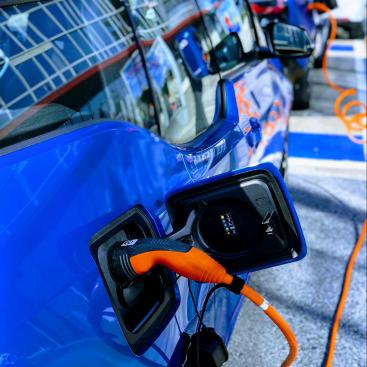Ideas

The Article 173 of the French Law on energy and transition for Green Growth requires French investors to communicate how environmental, social, and governance issues are considered in their investment choices and processes. Going beyond compliance, the annual publication of our impact report is an opportunity for us to demonstrate why and how we have put sustainable development at the core of our investment policies and engagements. It is an opportunity for us to emphasize the way we create environmental and social value, while simultaneously realizing financial performance. We hope that this report strengthens the understanding and confidence in the quality of our approach as a responsible investor.

We believe that more than ever, green bonds are the focus of attention and the curiosity they are arousing is equalled by the questions they have raised. These instruments, which are geared towards "green" projects, have emerged as a market segment of their own at a time when questions about the integrity and sustainability of investments are becoming increasingly pressing.

More than ever, green bonds are the focus of attention and the curiosity they are arousing is equalled by the questions they have raised. These instruments, which are geared towards "green" projects, have emerged as a market segment of their own at a time when questions about the integrity and sustainability of investments are becoming increasingly pressing.

The Article 173 of the French Law on energy and transition for Green Growth requires French investors to communicate how environmental, social, and governance issues are considered in their investment choices and processes. Going beyond compliance, the annual publication of our impact report is an opportunity for us to demonstrate why and how we have put sustainable development at the core of our investment policies and engagements. It is an opportunity for us to emphasize the way we create environmental and social value, while simultaneously realizing financial performance.

This is a methodological document aimed at clarifying how Mirova takes into account sustainable development issues in the framework of the environmental, social and governance analysis of each sub-sector of activity.

This is a methodological document aimed at clarifying how Mirova takes into account sustainable development issues in the framework of the environmental, social and governance analysis of each sub-sector of activity.

The way investors allocate capital can and will make a difference in meeting global sustainability challenges and succeeding in the energy transition. We encourage investors to avoid overreliance on a single scenario or emissions pathway, so our method emphasizes and supports the multitude of potential pathways to 2°C, free from pre-defined sectoral allocations. It is applicable across all asset classes, versatile, and scalable, with many potential applications within the investment process. The outcome is a simple-to-interpret indicator – climate change trajectory in °C – consistent with qualitative analysis.

Electrifying the transportation system represents an upheaval for the automotive industry and the entire transportation sector. The upcoming transition will force companies to reexamine how they think about mobility and to develop new and evolving technologies to meet the challenges it brings. As the transition towards electrifying our transportation systems begins to gather momentum, this study aims to identify the major challenges and solutions of the electric vehicle sector, and to identify the parts of the sector with high added value in order to support companies which will play key roles in the energy transition.
